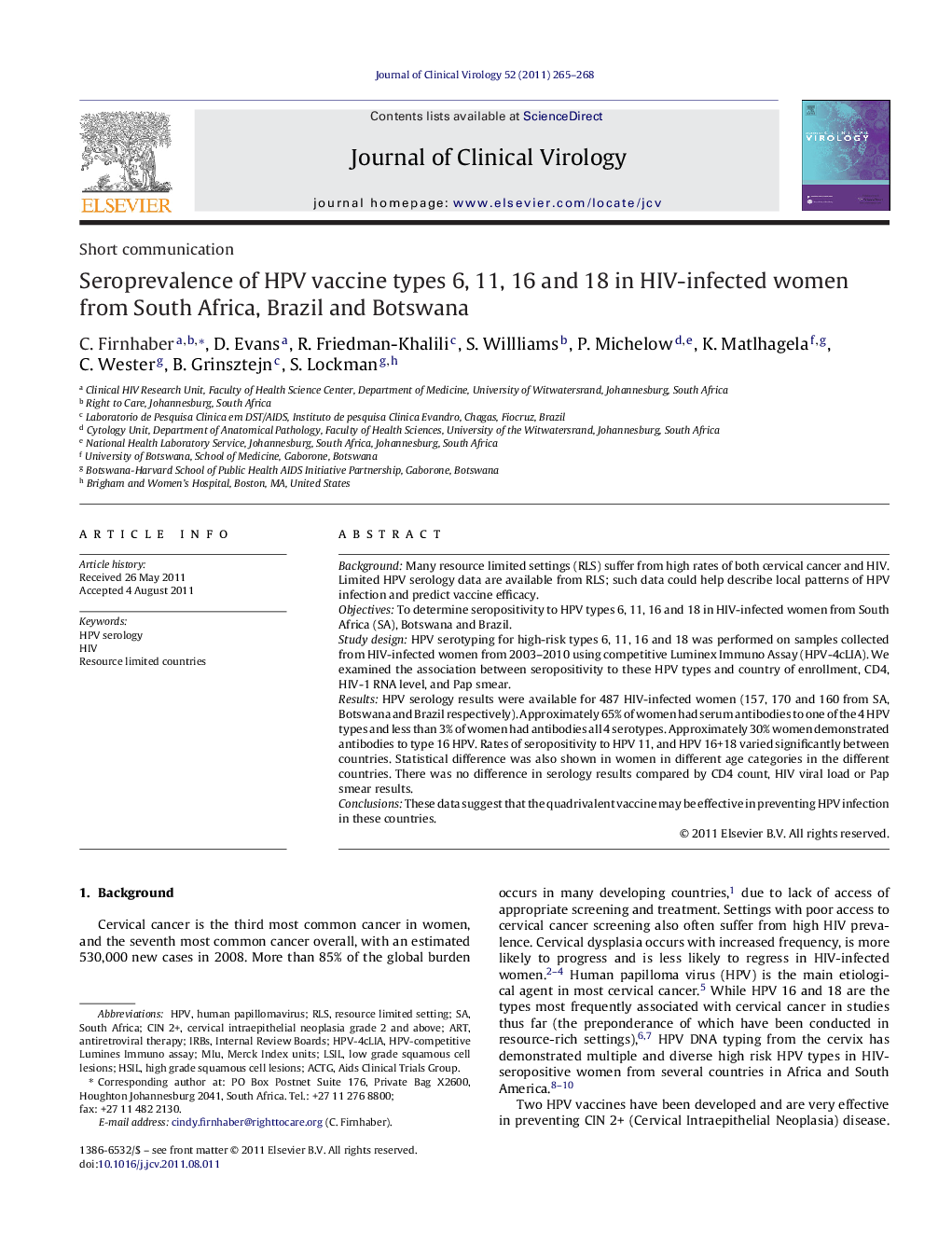| Article ID | Journal | Published Year | Pages | File Type |
|---|---|---|---|---|
| 3369061 | Journal of Clinical Virology | 2011 | 4 Pages |
BackgroundMany resource limited settings (RLS) suffer from high rates of both cervical cancer and HIV. Limited HPV serology data are available from RLS; such data could help describe local patterns of HPV infection and predict vaccine efficacy.ObjectivesTo determine seropositivity to HPV types 6, 11, 16 and 18 in HIV-infected women from South Africa (SA), Botswana and Brazil.Study designHPV serotyping for high-risk types 6, 11, 16 and 18 was performed on samples collected from HIV-infected women from 2003–2010 using competitive Luminex Immuno Assay (HPV-4cLIA). We examined the association between seropositivity to these HPV types and country of enrollment, CD4, HIV-1 RNA level, and Pap smear.ResultsHPV serology results were available for 487 HIV-infected women (157, 170 and 160 from SA, Botswana and Brazil respectively). Approximately 65% of women had serum antibodies to one of the 4 HPV types and less than 3% of women had antibodies all 4 serotypes. Approximately 30% women demonstrated antibodies to type 16 HPV. Rates of seropositivity to HPV 11, and HPV 16+18 varied significantly between countries. Statistical difference was also shown in women in different age categories in the different countries. There was no difference in serology results compared by CD4 count, HIV viral load or Pap smear results.ConclusionsThese data suggest that the quadrivalent vaccine may be effective in preventing HPV infection in these countries.
